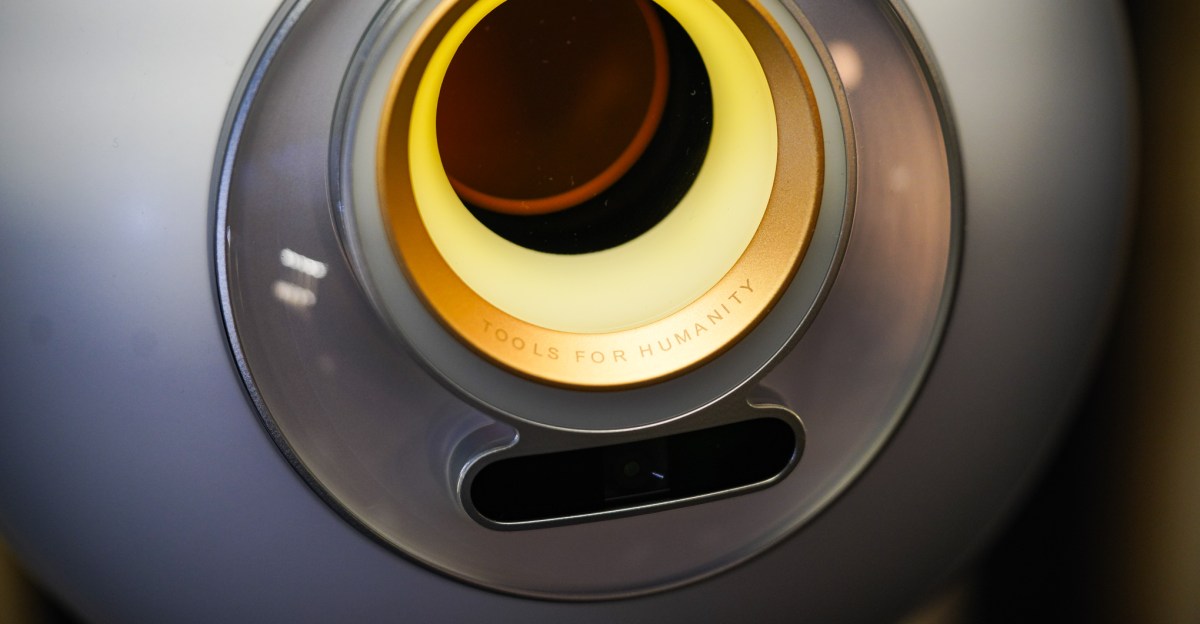The ambitious Worldcoin project, co-founded by OpenAI CEO Sam Altman, has officially marked a significant milestone: the Worldcoin US Launch. This expansion includes the availability of its native cryptocurrency, WLD, to users in most US states, notably featuring a listing on major cryptocurrency exchange Coinbase. The rollout, beginning this week, coincides with the unveiling of a more portable iteration of their distinctive iris-scanning device, dubbed the “orb mini.”
According to Techmeme, linking to The Verge, this move represents a critical step for Worldcoin, bringing its controversial yet groundbreaking approach to digital identity verification and financial access to the highly influential US market. Until now, the WLD token’s availability for purchase, or the ability to participate fully in the Worldcoin ecosystem requiring iris verification via the Orb, has been limited within the United States due to regulatory uncertainties and operational complexities.
Worldcoin’s core premise revolves around creating a global digital identity network using biometric proof-of-personhood. Users verify their unique human identity by scanning their iris with a specialized device called the Orb. In exchange for this verification, users typically receive a grant of WLD tokens. The project envisions a future where a universal digital identity could pave the way for applications ranging from secure online logins to potentially facilitating universal basic income.
Understanding the Worldcoin US Launch and Its Significance
The ability for users in most US states to now access WLD tokens through platforms like Coinbase dramatically increases the project’s reach and potential liquidity. Coinbase is one of the largest and most trusted cryptocurrency exchanges globally, and a listing on such a platform lends significant credibility and accessibility to the WLD token. For the Worldcoin US Launch to include Coinbase availability is a major boost, simplifying the process for Americans to acquire and trade the token.
The US market, despite its complex regulatory landscape concerning cryptocurrencies and data privacy, remains a key territory for global technology and financial initiatives. Successfully navigating entry into this market is paramount for Worldcoin’s aspiration of building a truly global network. The phased Worldcoin US Launch indicates a careful approach, likely taking into account varying state-level regulations.
The project’s technology, centered around the Orb, has been the subject of intense scrutiny and debate since its inception. While proponents argue it’s a necessary tool for distinguishing humans from AI in the digital age and enabling fair distribution of resources, critics raise significant concerns about data privacy, security, and the potential for centralized control over sensitive biometric information. The Worldcoin US Launch inevitably brings these debates to the forefront within the American public and regulatory spheres.
The Debut of the Portable Orb Mini
Alongside the token launch, Tools for Humanity, the company behind Worldcoin, is debuting the “orb mini.” The original Orb is a distinctive, spherical device deployed in physical locations worldwide for users to undergo the iris-scanning verification process. The introduction of a more portable version suggests an effort to make the verification process more accessible and potentially scalable.
A smaller, more portable orb could allow for easier deployment in diverse locations, potentially enabling Worldcoin to reach more users more quickly across the US. This could be particularly relevant in areas where setting up a fixed Orb location is challenging. The design and specifications of the “orb mini” will likely be detailed further as the rollout progresses, but the emphasis on portability is a clear indication of Worldcoin’s strategy to reduce barriers to entry for its identity verification system.
According to reporting from The Verge, the simultaneous launch of WLD trading in the US and the unveiling of the “orb mini” underscores Worldcoin’s dual focus: establishing a robust economic layer via the token and expanding the reach of its unique identity verification mechanism.
The WLD token itself is designed not just as a grant for verified users but also aims to function as a utility and governance token within the Worldcoin ecosystem. Its value is tied to the growth and adoption of the network, as well as broader cryptocurrency market dynamics. The Worldcoin US Launch on Coinbase provides a significant liquidity pool and exposure that could impact the token’s trajectory.
Potential Impact and Ongoing Debate
The entry of Worldcoin into the US market is likely to reignite discussions surrounding digital identity, biometrics, and the future of decentralized technologies. The project’s association with Sam Altman also draws attention, given his prominence in the AI field, which intersects with Worldcoin’s goal of differentiating humans from machines online. The Worldcoin US Launch is not just a token listing; it’s the introduction of a complex socio-technical experiment into a new, significant jurisdiction.
Critics will undoubtedly amplify concerns about data privacy, the security of biometric scans, and the potential implications of a system that links a financial asset to a verified biological trait. Regulatory bodies in various US states and at the federal level may also pay closer attention to Worldcoin’s operations and data handling practices following this widespread launch. For the Worldcoin US Launch to proceed, it suggests Worldcoin believes it can navigate the existing legal frameworks, or perhaps anticipates future clarity.
Supporters, on the other hand, will highlight the potential benefits: creating a truly global, inclusive financial system, enabling verifiable online interactions in an age of sophisticated AI bots, and providing a foundational layer for future digital societies. The ease of access offered by the Coinbase listing and the potential scalability gains from the portable “orb mini” are key points in their favor.
The success and broader acceptance of Worldcoin in the US will depend heavily on how the project addresses privacy concerns, ensures the security of user data, and communicates its long-term vision. The technical implementation, the decentralization roadmap for the network, and the governance model for the WLD token will all be scrutinized. The Worldcoin US Launch is just the beginning of this new phase for the project.
As the Worldcoin US Launch unfolds this week, market participants will be watching the performance of the WLD token on exchanges like Coinbase, while the public and policymakers will likely engage in renewed debate about the merits and risks of Worldcoin’s unique approach to global identity and cryptocurrency.


